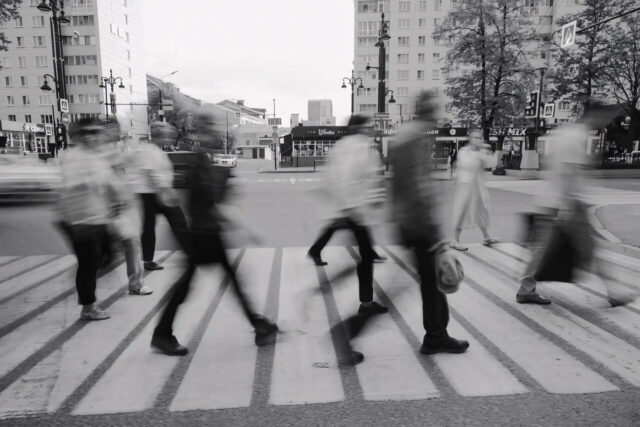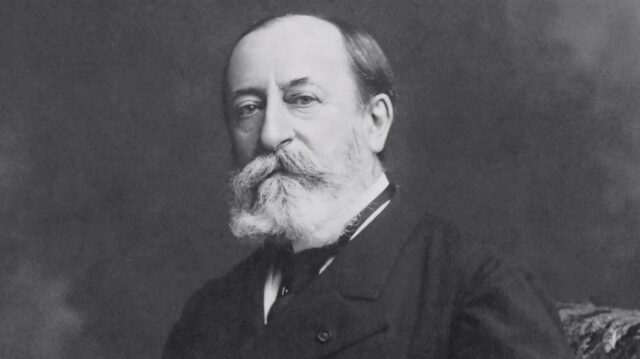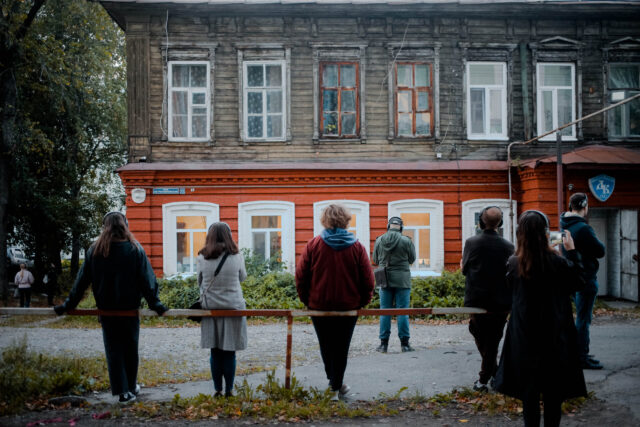1. How do you see the continuation of the Gulag project and will you participate in it?
The continuation of the Gulag project is primarily the responsibility of others. My job is to conceive and direct one of the most complex opera productions ever seen. We have received considerable interest from other companies world-wide in our production of Fidelio and many of these interested parties will attend the performances. It will be interesting to see what invitations follow and how we will need to adapt our ideas to suit other spaces and other companies.
2. Is it easy or hard to work with a Russian-speaking company?
Working with a Russian company is quite a challenge for me but not one that has caused many problems. I have a fantastic interpreter and assistant, Tatiana Peshkova, and she is with me for rehearsals and technical meetings. When I was at school many years ago I learned Russian and some of this is coming back and I pick up phrases and words easily. The Russian system of work is new to me and takes a bit of getting used to. The multiple casts are necessary for the repertoire system and because we have 7 performances in 11 days.
The only thing that has caused some problems is the appalling Russian translation of the opera, which is not at all faithful to the original German text. It turns out to have been a Soviet-style re-writing of the original. This was not checked properly before it was agreed to use it and I have had to work with the singers to change many things. Some of the texts I have been unable to change as they were already learned by the singers and chorus. I hope that we will be able to bring this vital part of the production in line with Beethoven’s intentions.
3. This is not the first time you have created a site-specific production, but have those productions ever embraced such a large number of participants?
I have directed many site-specific productions, both operas and plays. It is a way of working that I like and which produces its own rewards and challenges. None of these previous productions used as many performers as we will have here in Perm. However, I have directed as cast of over 300 people before in the Royal Albert Hall in London where I staged the centenary production of Puccini’s La Boheme. This was the first of the arena operas that the hall is now famous for and was performed completely in-the-round for an audience of 4,500 at each performance. 43,000 people saw that production and in creating it I learned many things about working with hundreds of performers in uniting them to a vision of the opera. The serious challenge with Fidelio is that we are not in a large venue but in a remote location which presents logistical challenges as well as those of scale. When I was Chief Executive of the Wexford Opera Festival in Ireland I staged a festival in a remote castle where we had to build a temporary 700-seat theatre and transport the audience and participants in the same way we will in Perm. Fidelio is like a combination of all of these previous projects at the same time!
4. Had you been asked to work in Russia before George Isaakyan’s invitation?
I had been asked a number of times to direct in Russia but I was either not available or the projects were not interesting to me. George’s invitation to me was originally to direct Eugene Onegin and I came to Perm to discuss this with him. It was only while I was here for that meeting that he showed me photographs of Perm 36 and I then came up with the idea of staging Fidelio there. I had been interested in directing Onegin because of the connection of the opera house and Tchaikovsky and because it is one of my favourite operas. Fidelio was my instinctive response to the photographs that I was shown of the camp at Perm 36.
Next year, I will face another interesting challenge as I have been invited to direct a Tom Stoppard play at Teatr-Teatr in Perm. I am looking forward to working with Russian actors for the first time as opposed to singers.
5. You recently saw the premiere in TUZ. What other Perm theatres have you visited? What is your opinion of Perm theatres?
I have seen Chonkin at TUZ in Perm three times. It is one of the most favourite productions I have seen. I loved the detail of the performances and the incredible ensemble of actors. I also saw Don’t Forsake Me and The Elder Son at TUZ. My assistant, Tatiana Peshkova is an actress at this theatre and I have grown to admire their work. At Teatr-Teatr I have seen Chekhov in Yalta and The Heart is not a Stone. Last year I came to Perm especially to see Boris Milgram’s incredible production of The Life of a Human Being. Before I leave on this trip I want to see a couple more productions at Teatr-Teatr including Zhivago.
Perm theatres seem to be of a very high standard at the moment. I have heard about the McDonagh productions at the Theatre Near the Bridge, but have not been able to see them yet. I hope I will have time soon — having spent many years in Ireland and knowing the writer, I am very interested in how his plays work in Russian.
6. What is the principal difference between the performance in the theatre and in a historical place? What other site-specific shows have you done?
The principal difference between performances in a theatre and in historical places is that the space itself plays a part in the interpretation and in the audiences appreciation of the production. If you chose the right play for the right place it can add something incredible to the experience.
I enjoyed directing Weber’s opera Der Freischutz in 10 different ruined castles in England. I have also staged Mozart’s Marriage of Figaro in a grand house of the period of the opera. This was magical as the audience moved from room-to-room encountering the various scenes in an in a way chosen by each audience member. As you can imagine, this was quite complex as we had to have all scenes happening at the same time and then repeated many times!
I would like to do a site-specific production of a play in a office block or large shop in Perm.
7. Fidelio is a story about the struggle against injustice. You chose Perm 36 as the venue for the production, the camp which actually was the punishment institution for the state criminals who had been convicted according to the legislation of that time. It can be perceived that you are trying to create the atmosphere of the romantic heroism around the crimes against the state. Do you consider it’s normal to break the law which seems to you unjust?
Truth and Justice are not always connected to laws. There have been many examples in history where unjust laws or practices have been challenged by people. Apartheid in South Africa was an unjust system and when challenged was eventually replaced. Without the struggle for freedom that Nelson Mandela and others made over a number of years, people in that country would still be treated as second-class citizens. In order to challenge the system, Mandela and other broke what were manifestly unfair laws and were imprisoned. No-one today would propose that what Mandela did was wrong.
One of the former prisoners in Perm 36 was imprisoned for receiving books in the post from the west. These books were at the time available and sold legally in Russia. His imprisonment for 7 years seems to me to be unjust and worthy of challenge.
Beethoven’s opera was written when the up-heaval of the French revolution was still resonating in people minds throughout Europe. It deals with a specific prisoner who is detained illegally by the laws in operation. The reason that he and the other prisoners are released at the end is that the law is being applied. Beethoven does not set out to justify or romanticise criminality. Neither do I.
8. Is there another project of the same scale as Fidelio in your plans to be done in Russia? If there is, then how long will it take to see it?
At the moment I have only plans to direct a Tom Stoppard play at Teatr-Teatr in Perm. I would be happy if other invitations were to follow from Fidelio. The Stoppard play will open in Perm in February 2011. Fidelio has taken me 2 years to plan and similar large projects will take the same time, so maybe there will be something in 2012!
9. How much fabric has been used to make so many costumes? Are costumes of Beethoven’s period or of GULAG one?
Fagila Selskaya’s costumes are incredible. She is a genius! I do not know the amount of material that is used but it is a lot. The overall impact of the costumes will not be in the time of Beethoven but in the time of the camp. However, we will see the central character transform herself from a 18th century woman to an 18th century man and then to modern soldier and finally into a modern woman again. The prisoners costumes will also change from 1950’s to present day and from Russia to Guantanemo Bay!



